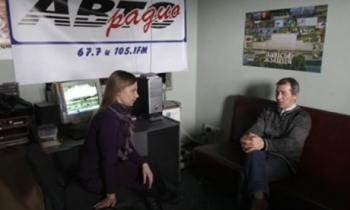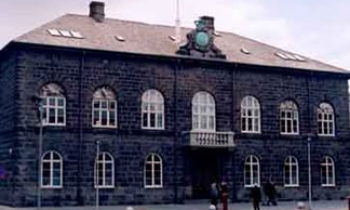LONDON (Reuters) - The country's normally provocative newspapers have so far refused to publish the cartoons of Prophet Mohammad that have outraged the Islamic world, prompting some commentators to question whether they have become too politically correct.
The Sun said it had chosen not to print the cartoons out of respect for its Muslim readers while other papers said it was important not to inflame religious tensions in the country.
Publication of the cartoons has sparked outrage across the Islamic world and a fierce debate over freedom of speech.
They first appeared in a Danish newspaper and have since been reprinted in papers across Italy, Spain, France and elsewhere.
Peter Preston, a former Guardian editor, told Reuters he was not convinced by the British papers' reasons for not publishing.
"I sort of expected one or two papers (to print them) from a strongly libertarian point of view," he said, adding they may have refused out of security fears for reporters, the threat of a boycott of Muslim readers or the sense that the argument was happening in Europe and not "over here".
Steven Barnett, a professor of communications at the University of Westminster, told Reuters he was concerned by the decision.
"The question is, why is Britain different from continental Europe? I hope we're not veering too much towards censoring freedom of expression and being almost overly politically correct," he said.
The Guardian, which printed a Web site address to the cartoons, said they wanted to give people the choice whether to look at the pictures or not.
"It is one thing to assert the right to publish an image of the prophet," the Guardian wrote in an editorial.
"It is another thing to put that right to the test, especially when to do so inevitably causes offence to many Muslims and, even more so, when there is currently such a powerful need to craft a more inclusive public culture."
One cartoon showed Mohammad wearing a turban shaped like a bomb.
The question of race relations leapt to the top of the political agenda last July after four British Muslims blew themselves up on London's transport system, killing 52 commuters.
A spokesman for the Muslim Council of Britain welcomed the press' stance and said he thought it showed a maturity that was sometimes lacking in European newspapers.
"Many Muslims do have complaints about the press here but it is noticeable that in the last 10 or 15 years (it) has shown a degree of improvement in the way it covers these kind of issues," he added.
But others were simply puzzled by the media's reluctance to get involved.
"The British press is usually considered so robust on issues of freedom of speech," Ian Reeves, the editor of media magazine Press Gazette told Reuters.
"It is being widely discussed and debated and therefore it seems odd not to publish the thing at the heart of it."









